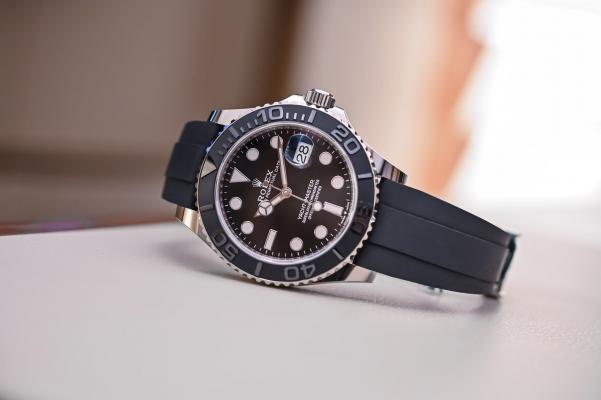For watch enthusiasts, accurate timekeeping is vital to owning and enjoying a timepiece. Whether you have a genuine luxury watch or a replica, ensuring that it maintains accurate time is crucial. If you’re curious about the accuracy of your replica watch, this comprehensive guide will provide essential tips and methods to assess its timekeeping precision. Learn how to detect whether your replica watch is accurate and performing at its best, so you can confidently enjoy your timepiece!

By following these simple steps, you can ensure how to detect whether your replica watch is accurate:
- Set the Watch to the Correct Time:
Before evaluating the accuracy of your replica watch, ensure that you’ve set it to the correct time. Use a reliable time source, such as an atomic clock or a smartphone app, to set your watch accurately. - Observe the Timekeeping Over Several Days:
Accurately assessing your replica watch’s accuracy requires time and observation. Wear the watch regularly and monitor its timekeeping over several days to better understand its performance. - Compare with a Reliable Time Source:
Regularly compare your replica watch’s timekeeping with a reliable time source, such as an atomic clock or a quartz wristwatch known for its accuracy. Take note of any discrepancies between the two-time sources. - Measure the Daily Deviation:
To determine the accuracy of your replica watch, measure the daily deviation in seconds. Record the difference between the watch’s timekeeping and the reliable time source over multiple days. - Calculate the Average Deviation:
After recording the daily deviations, calculate the average deviation by adding all the deviations and dividing the total by the number of days observed. This will give you an idea of the watch’s average daily deviation. - Consider Acceptable Deviation Range:
In the watch industry, an acceptable daily deviation for mechanical watches is generally around -10 to +30 seconds per day. Quartz watches are more accurate, with deviations of a few seconds or less per day. - Allow for Break-In Period:
Remember that some replica watches may require a break-in period to settle into their accurate timekeeping. If your watch is new, give it time to stabilize its performance. - Have It Professionally Serviced:
If you notice significant deviations or irregularities in your replica watch’s timekeeping, consider having it professionally serviced by a watchmaker. Regular maintenance and servicing can improve accuracy. - Monitor for Environmental Factors:
Environmental factors like temperature and humidity can affect a watch’s accuracy. Avoid extreme conditions or sudden changes in the environment to ensure stable timekeeping. - Be Mindful of Power Reserve:
For automatic or mechanical replica watches, the power reserve can impact accuracy. Keep your watch sufficiently wound or wear it regularly to maintain accuracy.
Conclusion:
In daily life, it is very important to know how to detect whether your high imitation watch is accurate. Detecting whether your replica watch is accurate requires patience and observation. Set the watch to the correct time, monitor its timekeeping over several days, and compare it with a reliable time source. Calculate the daily and average deviations to determine accuracy. In addition, remember that a certain deviation level may be acceptable for replica watches. If you notice significant discrepancies, consider professional servicing. By following these essential tips, you can ensure your replica watch is accurate and performs at its best, providing accurate timekeeping and an enjoyable timepiece experience!
